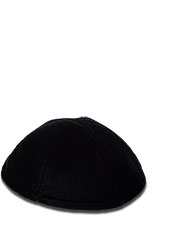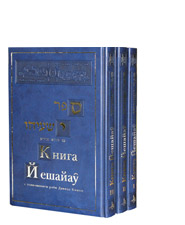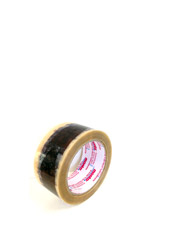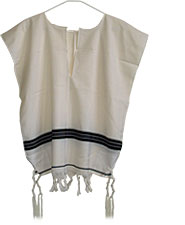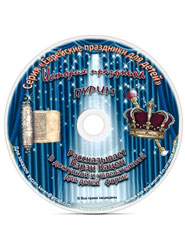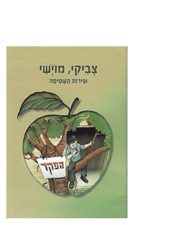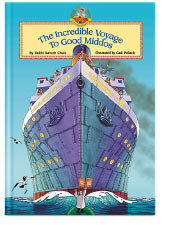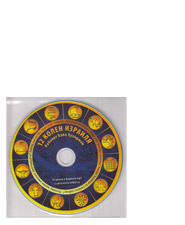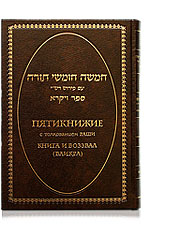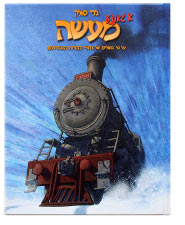
Toldos Yeshurun Second Annual Dinner
What is the first thing that comes to mind upon hearing the words "Russian kiruv"?
Toldos Yeshurun Second Annual Dinner
On Sunday evening, November 4th, the Torah community rallied together to celebrate the success of Toldos Yeshurun, a premiere Russian kiruv organization in Eretz Yisroel. At this second Annual Dinner, hundreds of guests were privileged to hear great divrei chizuk and inspiring messages from those who are working on the front lines with Toldos Yeshurun in Eretz Yisroel, as well as many American friends of the organization who feel it is a special zechus to support this important cause.
Toldos Yeshurun was established in the year 2000 by Rav Yitzchok Zilber, zt’l, the father of the Russian kiruv movement. The premise of the organization is simple yet stunningly successful. Russian speaking avreichim are recruited from all four corners of Eretz Yisroel. They learn b’chavrusa with their not-yet- frum peers in Torah centers across the country. As these relationships blossom and the chavrusas meet on a regular basis , the emes begins to emerge, the sincerity bursts forth, the bright light of the Torah shines brightly, and the chavrusas begin to make significant changes in their lives. With over 1200 participants, the organization is achieving outstanding success.
Rav Moshe Rabinowitz served as Dinner Chairman. He welcomed the guests from Eretz Yisroel, especially Rav BenZion Zilber, Rav Avrech and Rav Cohen. “I don’t know how much you sacrificed to be here this evening,” he told the Dinner guests, “but nothing can compare to the sacrifices and mesiras nefesh of Rav Yitzchok Zilber, Zt’l, and those who are following in his footsteps today. They are truly amazing.”
Rav Ben Zion Zilber, who is the son of Rav Yitzchok and the current leader of Toldos Yeshurun, was introduced. In deference to the many Russian immigrants who attended the Dinner, Rav Ben Zion first addressed the guests in Russian. Then he said that it is a special zechus for us to “be mekarev Russian yidden, including many chavrusot, bochurim, and yungaleit.”
Rav Shlomo Feivel Schustal, Shlita, Rosh Yeshivas Torah Temimah, pointed out that “being machzir neshomos to Hakodosh Boruch Hu is in essence the same as being mekayem the mitzvah of hashovas aveidah. These lost souls are the Ribono Shel Olam’s neshomos, and they are being returned to Him through us.” To those who “were zoche to come here and be mechazek this heilige mossad,” he said, “Ashreichem ”
Rav Schustal asked why this mossad was able to experience so much hatzlacha. What was its special power? He answered in the name of the Ba’al Shem Tov, that the hashpa’ah of Torah is the greatest hashpo’oh of kedusha in the world.” Through limud haTorah people can change their lives. He blessed Rav Ben Zion, saying, “The Ribono Shel Olam should give him gezunt to continue to bring neshomos to yiras shomayim.”
Rav Rabinowitz commented on the difference between Noach and Avrohom. Why was Avrohom matzliach to be mekarev the people of his generation and Noach wasn’t? He humorously answered that “Noach gave mussar to the people and Avrohom Avinu gave kugel and good food.” He pointed out the Russian Jews consider themselves a close community, a kehilla, and the best way to be mekarev their community is through achdus.
One of the most successful examples of this concept here in the United States is the kehilla of Rav Avraham Binsky, Kehillas Moreshes Yaakov, the first Orthodox Russian immigrant kehilla in the United States. Rav Binsky works closely with Toldos Yeshurun and commented that “Toldos Yeshurun is not an ordinary kiruv organization, nor is it a Russian yeshiva. It is, in fact, a Russian kiruv movement, and today it has kollelim and yeshivos spread out all over Eretz Yisroel.” He cited two reasons for the organization’s outstanding success. First is the “mesiras nefesh of the yungaleit, all the talmidei chachomim who travel by bus to many different towns in Eretz Yisroel in order to teach Torah to Russian Jews. The second is the great zechus of the movement’s founder, Rav Yitzchok Zilber, Zt’l, who was a great tzaddik and devoted every moment of his life to learning and teaching Torah.”
Rav Binsky told a story of a personal encounter he had with Rav Zilber which showed that the Rav would go to great lengths to learn with every single Jew. “I met Rav Zilber on an inter-city bus late one night in Eretz Yisroel. It turned out he had visited a shoemaker in Tel Aviv because he wanted to explain Chumash to him. “He traveled from Yerushalayim to Tel Aviv just to explain something to one yid. This was Rav Zilber. It’s the zechus of this tzaddik that creates the success of Toldos Yeshurun.”
Among the honorees at this year’s Dinner was R’Shlomo Weinberger, a strong supporter of Toldos Yeshurun here in the New York area. “We’ve been very fortunate,” he said, “to have Toldos Yeshurun as part of our family. It’s a tremendous zechus for us to get to know Rav Ben Zion, Rav Avrech and all these wonderful people and to see what they do.” R’Shlomo admitted that in America, Toldos Yeshurun remains “a big secret,” although in Eretz Yisroel it is very well known. “We have to work on that aspect,” he said.
R’Shlome pointed out that the sefer “Ani Yehudi”, Rav Zilber’s amazing autobiography, is now being translated into English. It is a testimony to Rav Zilber’s awesome mesiras nefesh in Russia. “After all that,” said R’Shlome “he had the zechus to come to Eretz Yisroel” where he assumed that because everyone had the freedom to be a yid there would be many more religious yidden. He saw that it wasn’t so, especially among the Russian immigrant community, and he decided to do something about it.
“We have that nisayon too,” he told the Dinner guests. “In Boro Park and Flatbush, we always see car service drivers and others who are Jewish immigrants and we don’t think about it. But Rav Zilber, who was not a young man and who had little resources, decided to do something about it.” Thus was he able to embark on his “impossible mission” and create this tremendous kiruv movement. If we cannot actually do the same physically, then at least we should participate financially and help this mossad accomplish tremendous things.
Rav Dovid Cynamon, the Kesser Shem Tov awardee, spoke about Avrohom Avinu and Sarah Imeinu. Why, if she was on such a high madregah, did Sarah die when she heard about akeidas Yitzchok? Why couldn’t she handle it? He answered that it’s because each person was created to withstand his or her own nisyonos. “She simply wasn’t created for Avrohom’s nisoyon,” he said.
“Each country” he continued, “has its own set of nisyonos. Each of us has our own obligations, and our nisayon is our chov to help the people of Toldos Yeshurun.” He commented that while Moscow may be a huge circle on the map, and Volozhin is not even a dot, in shomayim it is the other way around. Volozhin is a huge circle and Moscow hardly registers. “So it is with Toldos Yeshurun,” he said. “We may not even be aware of their work but in shomayim they are most definitely on the map.”
The next honoree, Rav Avrohom Perlow, spoke about the words, “Toras Chesed al Leshonah” in Eishes Chayil. “The greatest Torah,” he says, “is to teach Torah to others. This is Toras chesed, and this is Toldos Yeshurun’s mission. To be mekarev those who are torn away from kedusha.”
He concluded by saying that “the Ribono Shel Olam should help them to do their work with great siyata dishmaya.”
He concluded by saying that “the Ribono Shel Olam should help them to do their work with great siyata dishmaya.”
R’Yisroel Starck, a Holocaust survivor who now lives in Chicago, was also honored at the Dinner. R’Starck mesmerized the Dinner guests with the story of his survival. “When I was greeted by these outstanding avreichim,” he said, “I asked myself, ‘Yisroel Starck, what are you doing here? What contribution can you make here this evening?’” He then proceeded to tell his story, from his childhood in Munkatch. “The expertise I possess,” he said, “is mesiras nefesh. I received my diploma in Auschwitz, Birkenau, and Mathaussen.”
R’Starck continued to say that, “we are here tonight to recognize the people who are on the front lines around the clock. They are dedicate to bringing yiddishkeit &Torah to Russian immigrants. The contribution they make is pure mesiras nefesh. The results are here in front of you. We have to give these askonim the ultimate support and not to let them down. Most important, we should enlist our families and friends and inform them about this very holy work.”
R’Starck continued to say that, “we are here tonight to recognize the people who are on the front lines around the clock. They are dedicate to bringing yiddishkeit &Torah to Russian immigrants. The contribution they make is pure mesiras nefesh. The results are here in front of you. We have to give these askonim the ultimate support and not to let them down. Most important, we should enlist our families and friends and inform them about this very holy work.”
Rabbi Eliezer Dimarsky of Chicago took upon himself the awesome task of translating Rav Zilber’s autobiography into English. “When I read this book in Russian,” he said, “all 400 pages of it, it was a huge inspiration. I hope it will be a huge chizuk for the English speaking community as well.” Rabbi Dimarsky said that, “for me, Rav Zilber represents the famous Yaakov’s ladder. He was a very practical man, but his head was always in shomayim and his emunah was tremendous.”
Rav Usher Kushner addressed the Dinner guests in Russian. Then Rav Sholom Kamenetsky, Guest Speaker, addressed the crowd, speaking about the specific nisyonos that the Russian Jewish people endured and how that affected their culture. “They have a certain shtarkeit,” he explained, “which developed because of their difficult circumstances.” This shtarkeit translates into a strength of character and an iron will. “But once you pierce that barzel, it remains pierced and the neshomo can be reached.” Rav Kamenetsky pointed out that Rav Zilber understood the nature of every single yid and he directed his divrei tochacha accordingly.
“This is not simply a kiruv movement,” Rav Kamenetsky said, “It’s an establishment of talmidim of Aharon hakohen.” He also pointed out that Rav Ben Zion possesses the ‘klaster ponim’ of his celebrated father and also inherited his special aidelkeit. He concluded by saying, “Hakodosh Boruch Hu should help us so that we can continue to be mechazek these types of mosdos.”
Thus did the program end, with a heavy dose of inspiration and chizuk for all those who were privileged to attend. Most of the Dinner guests were both amazed and inspired by the work of Toldos Yeshurun and many silently pledged to do their best to continue to support this vital mossad. Toldos Yeshurun may be the best kept secret in America until now, but not for long. Word of its outstanding hatzlacha is bound to be publicized to the community at large, and no doubt there will be hundreds more who will be eager to participate in Toldos Yeshurun’s Third Annual Dinner next year.
Send report





